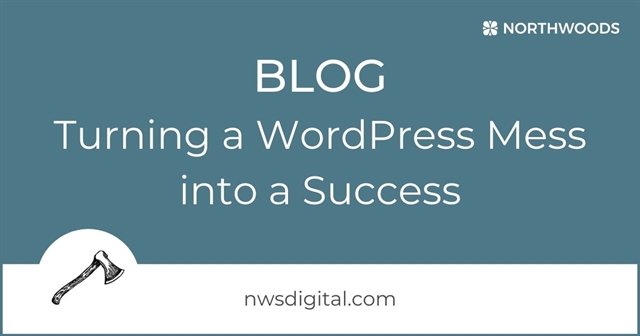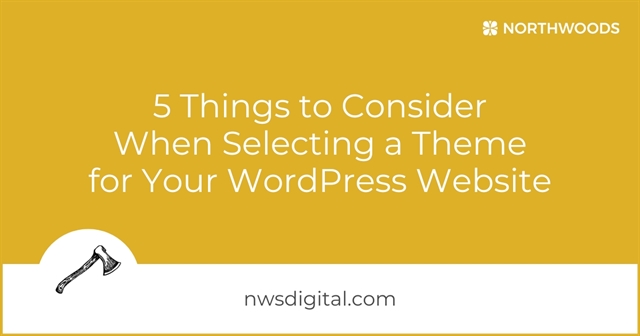By Matthew Karge
January 31, 2023
4 Minute Read
Updated: Jan. 31, 2023, Feb. 28, 2022
Originally Published: Feb. 21, 2021
In today's digital age, businesses have myriad options when it comes to selecting a content management system (CMS). It can be difficult to choose the best CMS for your business needs with so many options available.
The abundance of options often leads to even more questions, such as which platform is the most user friendly, which one offers the most robust features, and which one is the most cost effective?
Having built hundreds of websites on our own CMS platform (Titan CMS), WordPress and others during the past 25 years, we can confidently say that not all CMS options are the best fit for every business. Some of the most heavily advertised and well-known CMS platforms offer a wide range of features, but not all of them may be necessary or even useful for your business. In many cases, these excess features can be a hindrance and add unnecessary complexity to your website management process.
So, it's important to choose your next CMS carefully.
Should You Use WordPress for Your Website?
The simple answer is yes.
WordPress is a great solution for many businesses looking for a reliable and scalable CMS. According to W3Techs, more than 43% of all websites worldwide use the WordPress CMS. WordPress has a proven track record and a large community that allow you to customize your website to meet your specific needs.
Our team at Northwoods helps small and large businesses launch and maintain their WordPress websites. We also help businesses fix poorly built, dysfunctional WordPress sites. We’re good at turning a WordPress mess into a success.
Numerous free, out-of-the-box features simplify creating and maintaining a WordPress website. For small businesses with simple websites, there are thousands of free or low-cost themes and applications that enhance the look and feel of the interface, without help from a developer. Larger businesses can take advantage of page builder tools that create a unique looking website that is easy to maintain by a marketing team.
All this works because WordPress is an open-source development tool. It allows developers to create free or low-cost themes and applications and share them with the world.
10 Reasons Why WordPress is Right for You
Quick note: There are two approaches to WordPress: A self-hosted WordPress.org approach, where you control where the website resides; and a managed hosted option on WordPress.com. The points below lean toward WordPress.org.
1. Easy Website Setup
Most hosts offer WordPress installation as part of the environment set up. This makes it extremely easy for businesses to purchase a hosting plan and have WordPress set up for them.
Once installation is complete on the host, many features and functionalities become immediately available. You can quickly set up the website to fit your particular selling position.
2. User-Friendly Interface
In terms of required level of expertise, WordPress has made significant strides in recent years to simplify the process of managing designs and content. Non-technical users are more empowered to easily manage routine changes on their websites. But there are still plenty of tools for tech-savvy users to create highly customized websites.
This wide spectrum is one reason WordPress has spread all over the globe. The user-friendly and interactive interface makes creating web pages, forms, posts, and media easy for anyone, but still offers creative room for the sophisticated and ambitious.
3. Open-Source Platform
WordPress is an open-source platform. This means anyone can access the development code without commercial restrictions. The original developers of WordPress wanted to create a tool that tapped the collective talents of developers around the world to make the platform a success.
Anyone can download and use the code available in the WordPress Codex, from which developers get the information needed to create themes and plugins that can work on the platform. The result is an ever-growing database of features that anyone can access.
4. Variety of Plugins for Every Feature
Site owners add functionality by adding plugins. These plugins, written in PHP programming language, integrate effortlessly. Users can add features without knowing a single line of code. (Check out our tips for choosing the best WordPress plugins.)
5. SEO Friendly
WordPress has many tools available for search engine optimization. Sites developed in WordPress have some SEO best practices implemented, and the variety of SEO plugins are enough to satisfy the most advanced SEO optimizers.
Follow this link for more information on improving WordPress SEO.
6. Secure and Reliable
WordPress issues constant updates and security patches. Theme and plugin developers apply the changes to their own software to match. Thus, WordPress creates a safer website environment to protect you and your users from hackers. WordPress is among the most secure and reliable CMS platforms (as long as it is maintained).
Our WordPress team makes it easy for you to manage your WordPress updates and keep your site secured. Learn more about managing your WordPress updates.
7. Integration
WordPress further expands functionality by integrating with many third-party platforms. Most well-known brands associated with banking, digital marketing, and other digital-related services have developed a plugin or application that works directly with WordPress. This gives business and their intended audiences easy access to commerce and service.
8. Ecommerce Solutions
Many businesses have turned to WordPress to add e-commerce. With WordPress, you can manage your online store with popular e-commerce plugins, such as WooCommerce.
Plugins aside, WordPress is great for e-commerce sites due to its security and integration ability. Online stores need websites that support quick addition of products and secure payments.
9. Mobile Friendly
You need not revamp a WordPress site to make it accessible on mobile devices or tablets. Most themes are automatically responsive. (That is, they automatically adapt to various devices and screen sizes.) The WordPress dashboard works on both desktop computers and smartphones, so you can manage your website from anywhere.
10. More than a Blog
WordPress started out as the most popular platform for blogging. It’s ideal for that, but vast numbers of businesses use WordPress to build a strong web presence. But keep in mind that simply launching a website is not the same thing as building a presence. WordPress makes the former easy; the latter takes time, money, and effort.
11. (Bonus!) You Keep Your Content
There's a big difference between a self-hosted platform like WordPress.org versus a managed-hosted platform like Squarespace or Wix. The answer lies in the fine print when you create an account. Managed-hosted platforms take a lot of the worry out of the technology maintenance, but it comes at a price. Businesses and individuals that build a website on a managed-hosted platform never truly own the content. These platforms reserve the right to pull down a website if it doesn't meet its guidelines or payment is past due. Be sure to read all the fine print before agreeing to a managed-hosted platform.
Navigating the CMS landscape can be challenging, but with the right information and a clear understanding of your business requirements, you can select the CMS that best meets your needs.
Learn more about our WordPress services, including our worry-free WordPress maintenance and support. If you need help deciding on the right CMS for your business or are looking for WordPress website design, development or support, don't hesitate to reach out to us!
Related Blog Posts

Many organizations find themselves in an unexpected and challenging situation soon after launching a new WordPress website: their beautiful new site has turned into an unruly, seemingly untamable beast. While WordPress is a fantastic tool for creating and launching websites quickly and cost efficiently, constant updates and maintenance are required.

Many WordPress website owners take advantage of page builder tools, such as Beaver Builder and Divi, to build and manage their websites. Whether you’re a B2C or B2B company, your website might have a lot of product data, locations or events. Managing and maintaining large amounts of data with a page builder isn’t hard, but it does take time and a deep understanding of your data. Here are some tips on how to get your data ready for the web.

A theme is responsible for the layout, templates, styles, and other design elements of your website. Here are the five key things to consider when selecting a WordPress theme.